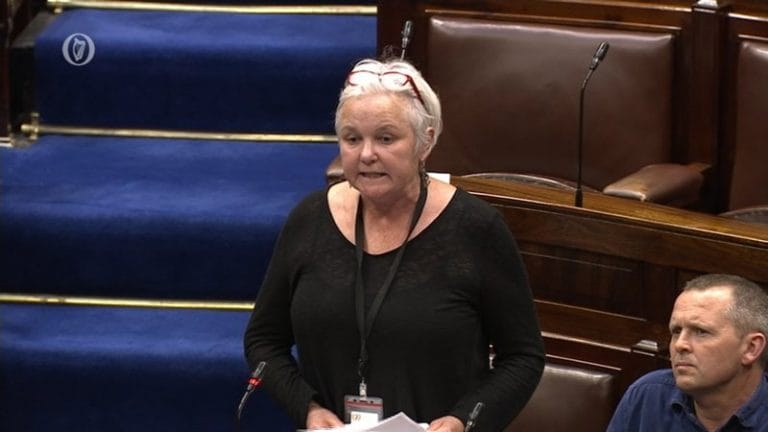Bríd Smith TD warns that “Ireland’s energy data centre crisis cannot be wished away”
Commenting after yesterday’s Dáil climate committee heard from experts and representatives of CRU and EirGrid on the issue of data centres and energy crisis, committee member Bríd Smith TD challenged some of the comments made by witnesses.
Deputy Smith said afterward that there was “a jarring difference between the recent warnings and reports from EirGrid and the organisation’s representative’s tone at the hearing.”
EirGrid’s Mark Foley had told the committee that data centres were a part of the solution and we would see “what they bring to the party”.
Deputy Smith challenged this narrative and said earlier warnings from the group were clear that Ireland could not sustain unbridled growth in data centre permissions. She pointed out that figures challenged by Mr Foley on the possible percentage of the state’s electricity that data centres could use actually came from a letter that EirGrid’s Group Head of Regulation sent to the CRU on 27th May of this year – a letter that the CRU considered important enough to include in the consultation process launched into ‘data centre grid connection’ in June 2021.
Speaking after the committee, Deputy Smith said: “There is a very definite change in tone from state agencies in relation to the need to curb data centre expansion, and it’s clear to me that this change is not based on changed facts or changed prospects for the future but on wider considerations and political pressures.”
She again appealed for Green Party TDs to reconsider their vote ahead of today’s Dáil vote on her bill to curb data centres and LNGs saying: “Despite soothing noises it’s clear there’s a clash between our climate targets, energy security for ordinary people and the insatiable needs of data centres; something has to give and the Greens especially will not be forgiven for opting to back continued growth of unsustainable centres while ordinary people pay in increased energy costs and threats of blackouts.”
